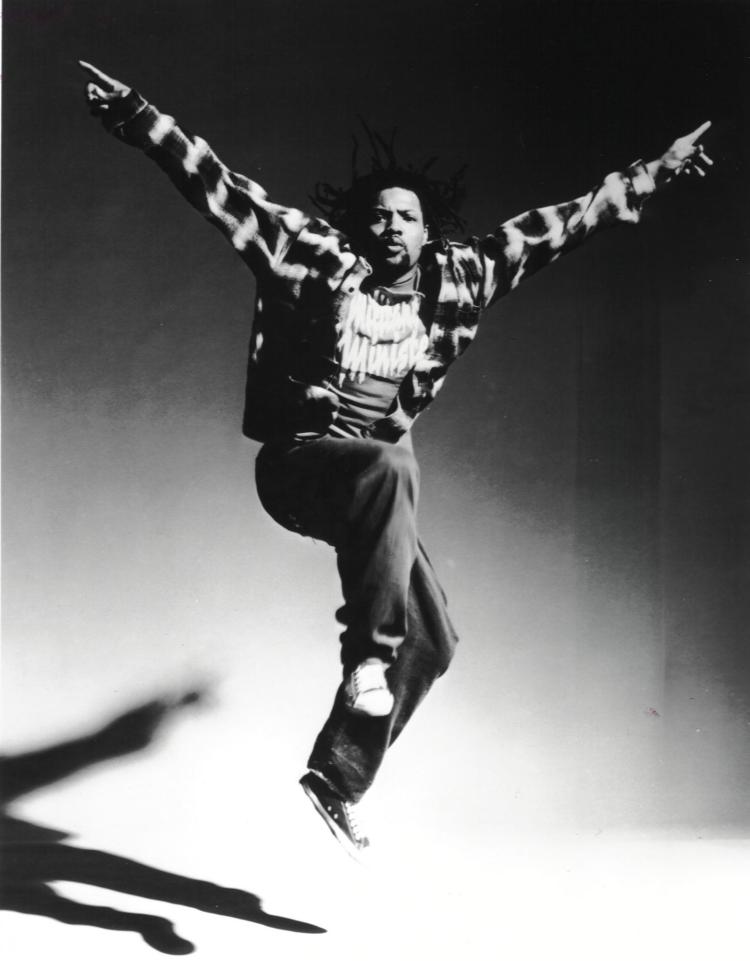Rennie Harris named ‘Living Legend’ by Dance Magazine
Hip-hop icon receives prestigious award from one of the most-read publications in dance
Lorenzo “Rennie” Harris, an artist-in-residence in the Theatre and Dance Department at the University of Colorado Boulder, has earned Dance Magazine’s “Living Legends” award for 2017.

Rennie Harris in action. Photo by Bob Emmott. At the top of the page, Harris coaches dancers in his company, Rennie Harris Puremovement. Photo courtesy of RHPM.
Dance Magazine names only four awardees each year, and honorees include such notable dancers as Fred Astaire, Pina Bausch and Misty Copeland.
The “Living Legends” award is reserved for artists who have made a permanent impact in the field of dance, the magazine states. Harris is widely considered to be the pioneer of “street dance” theater, being one of the first choreographers to bring hip-hop into the ballet studio.
Harris was also one of four ambassadors for the United States as a part of President Obama’s cross-cultural exchange program, Dance Motion USA.
Although he’s just earned another accolade, Harris is continuing business as usual in his classroom. “I don’t think about it,” says Harris.
“I haven’t fully grasped the meaning yet. Life still feels the same.”
His humility is not surprising. From teaching dance workshops at universities and the Smithsonian Institute as a teenager, to perpetuating the early hip-hop dance movement in Philadelphia during the ‘80s with his first company, the Scanner Boys, Harris says he didn’t deserve the title “professional choreographer” until he turned 40.
Harris views hip-hop as “the most important original expression of a new generation” and has remained dedicated to capturing the essence and spirit of the genre in his work.
Fostering community is a central part of Harris’s mission, and he believes being “culturally bilingual” is a crucial factor in accepting and learning about the diversity of others.
“You say African-American, Irish-American, Japanese-American and more,” Harris exclaims. Regardless of language, every culture in America has a voice, he says, and adding that he hopes to teach others how to listen.
If a picture conveys a thousand words, this video clip of Harris speaks for itself:
[video:https://www.youtube.com/watch?v=ZaqPveN4yiY]

